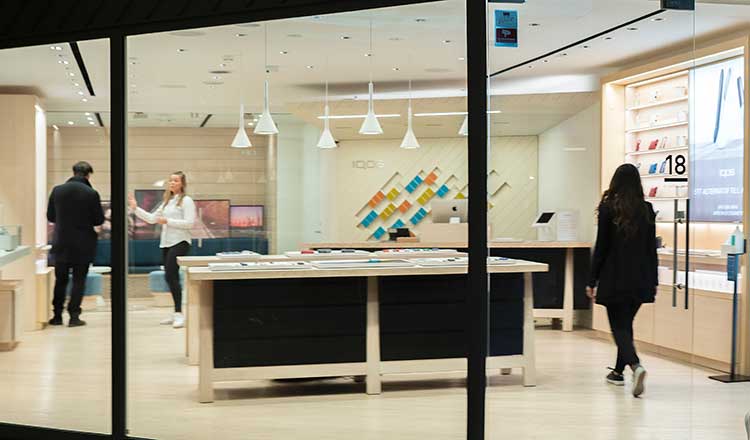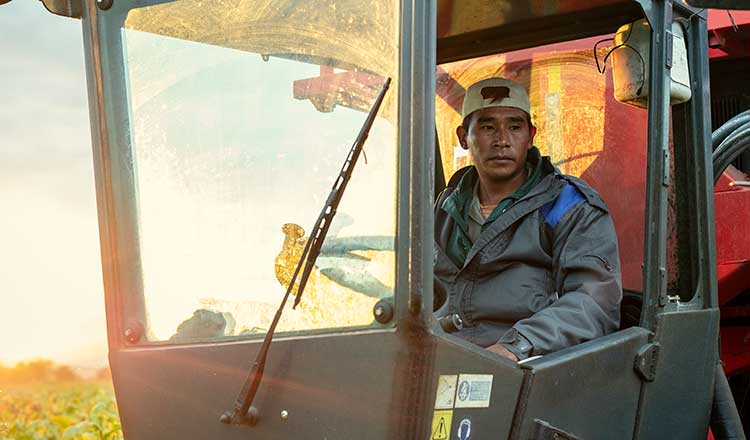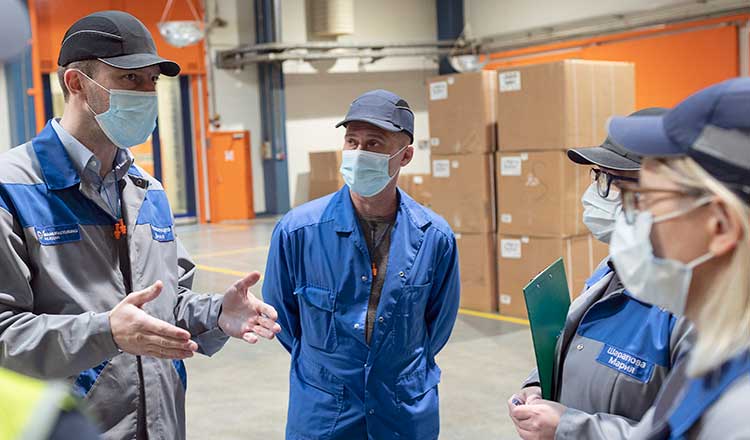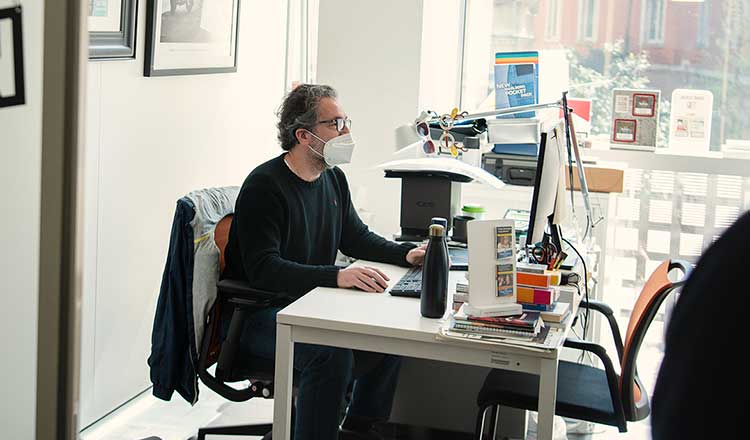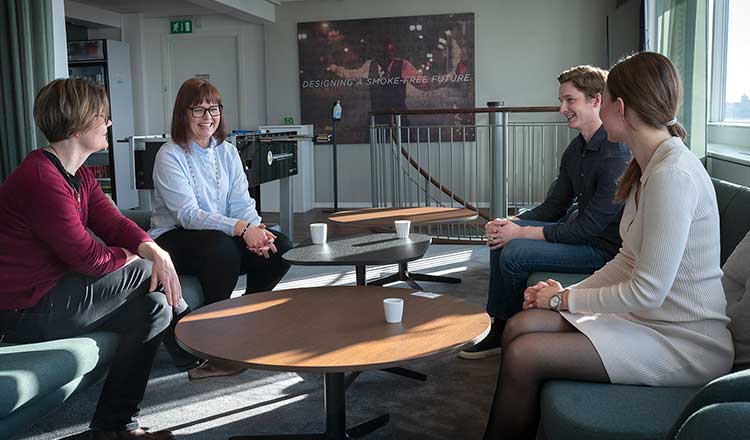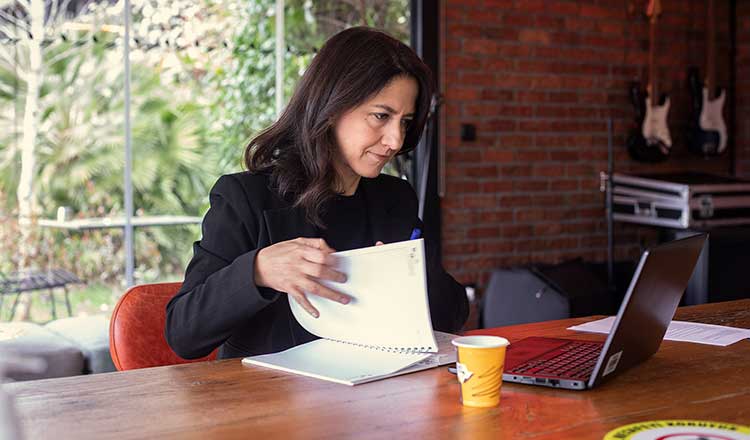Lasting effects through COVID-19
The COVID-19 pandemic had an impact on the global illicit trade problem, with lasting effects in the years to come. Illicit trade thrived under the pandemic, as the criminal organizations profiting from it were quick to adapt their operations to this new situation. As countries were struggling to effectively combat the pandemic, a rise in trafficking of fraudulent goods –including fake personal protective equipment (PPE) could be observed, as PPE was in short supply in many countries due to varying combinations of poor preparedness, trade restrictions, and production capacity constraints.
In the United States, PMI joined forces with other private sector partners and organizations to raise awareness of this threat and help increase the reporting of fraud to the authorities. This initiative—as well as an Illicit Trade Prevention certification course PMI organized and hosted for U.S. law enforcement agents—was recognized with a Partnership Award from the National Intellectual Property Rights Coordination Center (IPR Center), part of the U.S. Department of Homeland Security (DHS).
The campaign, which was launched in July 2020 and ran until the end of the year, was comprised of digital public service advertisements appearing in state and local media and nationally through key publishers—such as the Washington Post, the Wall Street Journal, VICE, Politico, Vox, and CNN—stressing the importance of being alert to inferior and fraudulent goods. The effort was further amplified through earned media and virtual events, including articles in the World Trademark Review and Homeland Security Today.
In addition to driving more than 346,000 clicks to DHS resources for recognizing and reporting fraud—the campaign was able to garner 225,955,399 digital impressions, 4,081,000 print impressions, and 6,927,848 radio impressions, reaching 77.2 million people in the U.S.
Media and international organizations reported throughout 2020 a surge in illicit trade and warned the public about the steep rise in counterfeit goods and fraudulent activity—from fake surgical masks and medicines to cybercrime and fraud While the demand for PPE will eventually decrease, it is expected that the illicit trade of other commodities which increased during the pandemic, such as luxury goods, is likely to stay in the long term. Once a new illicit market has been established and proven profitable, it is difficult to drive criminals out.
The pandemic also accelerated the shift to e-commerce and cyberspace, and the range of illicit goods sold online and on the dark web—consequently—expanded. We are addressing this growing threat by liaising with a number of online platforms and scaling up our online monitoring efforts. For instance, together with major internet platforms, rights-holders, and business associations, we are signatories of the Memorandum of Understanding on the Sale of Counterfeit Goods on the Internet. This is an agreement facilitated by the European Commission, which aims to “prevent offers of counterfeit goods from appearing in online marketplaces.” Throughout 2020, PMI actively collaborated in this space in order to effectively remove illicit products listed on online marketplaces.
In this chapter
- Lasting effects through COVID-19
- Using online tools to combat illicit trade
- Protecting consumers
- Anti-counterfeiting checks in consumer care and reverse logistics
- Preventing and fighting diversion of all our products
- The EU Tobacco Products Directive
- Enabling third parties to tackle illicit trade
- Next steps
Our goal was to raise awareness among consumers and policymakers and direct them to legitimate resources—and we did just that. We look forward to continuing collaborative efforts with both the public and private sectors to combat a common enemy—long after this pandemic has gone.
Kristin Reif
Director of External Affairs, Philip Morris International
Using online tools to combat illicit trade
As new technologies emerge, we make it a priority to understand how we can leverage them to eliminate fakes and the contraband of our smoke-free products, further secure our supply chain, and deter illegal actors from deceiving consumers. Online monitoring tools, which leverage artificial intelligence, help us monitor and address the issue by identifying the largest unauthorized resellers on social media and e-commerce platforms.
PMI’s Illicit Trade Prevention team has been working closely with experts in the field to develop and enhance these types of monitoring tools in order to assess and address illicit online sales. In 2020, we made these tools available in over 20 countries across the six regions we operate in; it helped us keep our monitoring efforts to scale with the growth of e-commerce and social media.
Tens of thousands of online commercial offers infringing our Intellectual Property were taken down in 2020. Many e-commerce offers infringing tobacco sales regulations were removed through the collaboration with e-commerce and social media platforms.
2020 performance highlights
Protecting consumers
In July 2020, we formalized the illicit trade prevention requirements to protect our smoke-free products devices and consumables in our internal product standards and included them in the industry voluntary standards. Those requirements mandate the application of security features made of both visible (e.g., serialized digital code, color-changing ink, holograms, etc.) and invisible elements (taggant microprint, UV ink, etc.) on the device and/or the critical components, as well as the protection of those from tampering via tamper-proof security feature and/or system feature (e.g. soft or firmware). The requirements further mandate the application of anti-counterfeiting features on consumables packaging and/or the consumable itself, as well the specific protection of Nicotine Delivery Systems (NDS) consumables (e-liquids) via tamper-proof design and/or consumer packaging protection by a tamper-evident security feature. PMI’s illicit trade prevention team is working closely with other teams within our company to ensure these requirements are taken into consideration from as early on as the product development initiation stages.
Anti-counterfeiting checks in consumer care and reverse logistics
We are mitigating illicit trade risk using tighter contractual arrangements and more robustly controlled reverse logistics processes, based on centralized inspection and recycling. We have embedded product authentication checks in critical processes such as in-market product return and consumer care processes, as well as at the PMI Reverse Logistics Hubs (CIRCLE). The early identification of possible counterfeit returned devices is key; it can also help counter potential warranty frauds. Our ITP team has developed a specific toolbox, including examples of typical fraud cases, talking points for consumer touchpoints, and access to online diagnostic tools, allowing first-level counterfeit identification. Product authentication checks have also been fully embedded in the inspection process taking place at the PMI reverse logistics hubs under the CIRCLE program, thus allowing the identification of product counterfeit and their subsequent detailed analysis. Read more about our CIRCLE program in our chapter on product eco-design and circularity.
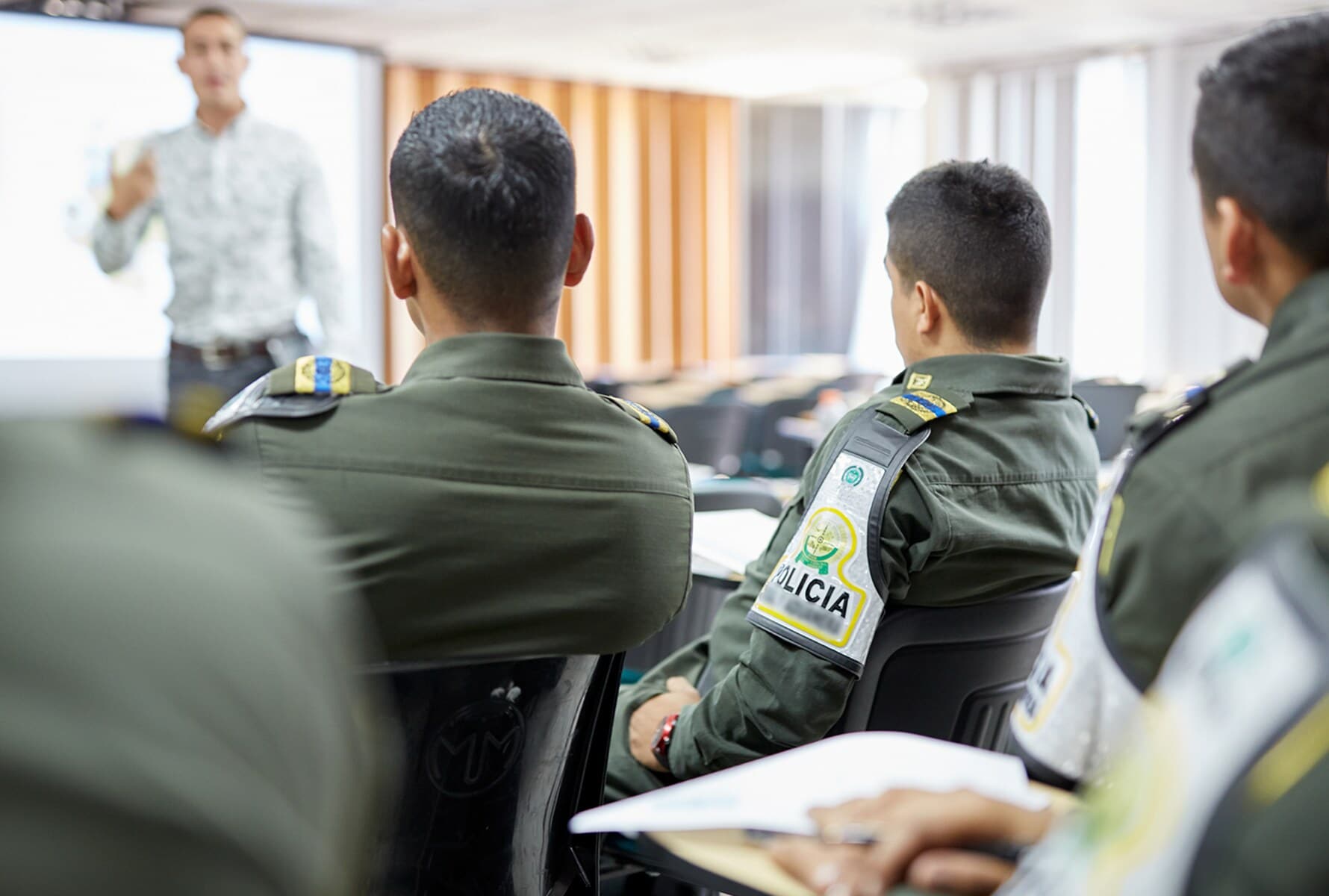
Preventing and fighting diversion of all our products
We have successfully applied a risk-based approach to focus our resources where they are most needed across our markets for several years now. Our supply chain controls -anchored in anti-diversion controls and preventive measures- led in 2020 to very positive results in countries like Turkey and Ukraine -where product seizures have been consistently decreasing since 2018- resulting in positive recognitions by law enforcement agencies at destination countries.
Capacity building and collaboration with law enforcement agencies
PMI continued supporting and hosting online workshops on intellectual property rights, training Customs officials in Asia and Latin America and sharing insights on how to identify and differentiate genuine and counterfeit goods, sharing the latest illicit trade trends (for example, concealment methods, routing, and abuses of Free Trade Zones) and providing supply chain information, as well as examples of illicit tobacco trade activity in different regions. Authorities from Cambodia, Thailand, Vietnam, the Philippines, as well as Central America, participated in these sessions.
Additionally, in Colombia alone, between August and December 2020, more than 1,050 officials from the Fiscal and Customs Police were trained virtually nationwide, as officials engaged with a digital training platform developed by PMI to provide information about the illicit trade of cigarettes in the country, and help on the identification of illegal products. In 2021, the training platform will be expanded to other key enforcement authorities such as Patrol Police, Colombian Navy, Federation of National Departments Operational Groups, among others.
In Russia, and in coordination with the Association of IP Rights Holders “Bazis”, PMI conducted different seminars and training sessions for Federal Customs Service and Police officers, providing an overview of the provisions of the main articles of the Code of Administrative Offenses and the Criminal Code of the Russian Federation, regulating the issues of liability for violations related to the production, acquisition, storage, transportation or sale of tobacco products; smuggling of tobacco products and nicotine-containing products; and illegal use of trademarks.
Throughout 2020, PMI also continued partnering with SGS—an inspection, verification, testing, and certification company—to provide risk-profiling training to more than 500 customs officials in countries like Burkina Faso, Colombia, Dominican Republic, Ecuador, Mexico, and Panama, as well as different ASEAN countries, including Indonesia, Malaysia, and the Philippines, in order to enhance the skill and knowledge of customs officials in identifying illicit trade, counterfeit, and pirated goods through the analysis of sea and air shipping documentations and cargo targeting techniques.
Alongside our continued efforts to combat the illegal trade of our conventional cigarette products, we are also stepping up our efforts to ensure there is no illicit trade on our smoke-free products.
We are addressing head-on—and continue to build our understanding around—the illicit trade challenges facing our smoke-free product portfolio in regions around the world. In order to accelerate and safeguard the smoke-free future, we keep raising awareness among our consumers, business partners, and regulators on the dangers of the illegal trade of smoke-free products, and the importance of using genuine goods, and purchasing through authorized channels only.
Identifying the scale of the issue and latest trends
The EU Tobacco Products Directive
We continue with our considerable efforts to combat the illicit tobacco trade in the EU wherever we run our business. Effective regulation is fundamental to combating illicit trade and an important step forward was made in 2019 with the implementation of article 15 of the EU Tobacco Products Directive (TPD), which established the first-ever, regional, multi-layer tracking and tracing system for tobacco products in the EU, operated by independent entities under the supervision of Member States and the EU Commission.
We reiterate that this first-ever EU-wide tracking and tracing system for tobacco products is a positive step for the prevention of illicit trade in the EU. And in 2020, we took all necessary steps to ensure our manufacturing facilities and systems continue to be in line with these requirements.
Enabling third parties to tackle illicit trade
Last year, grantees of PMI IMPACT saw progress in their efforts to curb illegal activities. In November 2020, the Siracusa International Institute for Criminal Justice and Human Rights – an Italian non-profit law and policy center, and the first funding round grantee of PMI IMPACT- launched its report “Closing the implementation gap: Criminal justice responses to illicit trade in South Eastern Europe and associated challenges”, which presents the main findings and recommendations that emerge from a three-year research and technical assistance project. In its first phase, the Siracusa Institute mapped and assessed the implementation of criminal justice frameworks relating to the fight against illegal trade in 12 jurisdictions, with the purpose of identifying the main practical challenges and obstacles for the criminal justice response to illicit trade across the region. The project’s second phase was devoted to capacity-building for a broad spectrum of law enforcement, criminal justice and other relevant actors.
PMI IMPACT brings a great stimulus to innovation. For universities, it is important because it brings us closer to public agents who are acting directly in the management of a complex international problemLeandro Piquet Carneiro one of the program coordinators and Professor at the International Relations Institute of USP
In October 2020, the International Relations Institute of the University of São Paulo (USP)–a second funding round grantee of PMI IMPACT—signed a cooperation agreement with the Brazilian Ministry of Justice and Public Security in order to provide training to law-enforcement officials in the Tri-Border Area (Brazil, Paraguay, and Argentina) and raise awareness about the operational structure of criminal organizations profiting from illicit trade in this region.
The USP’s Multidimensional Security and Border Control course was launched in December 2020, bringing together Police officers from the three aforementioned countries and registering over 2,500 participants to the course. The objective of the program is to reduce the asymmetry between government agencies combating the trade in counterfeit and smuggled goods, as well as to strengthen the cooperation between the different Judiciary branches and to promote the exchange of information and operational capacity among participants.
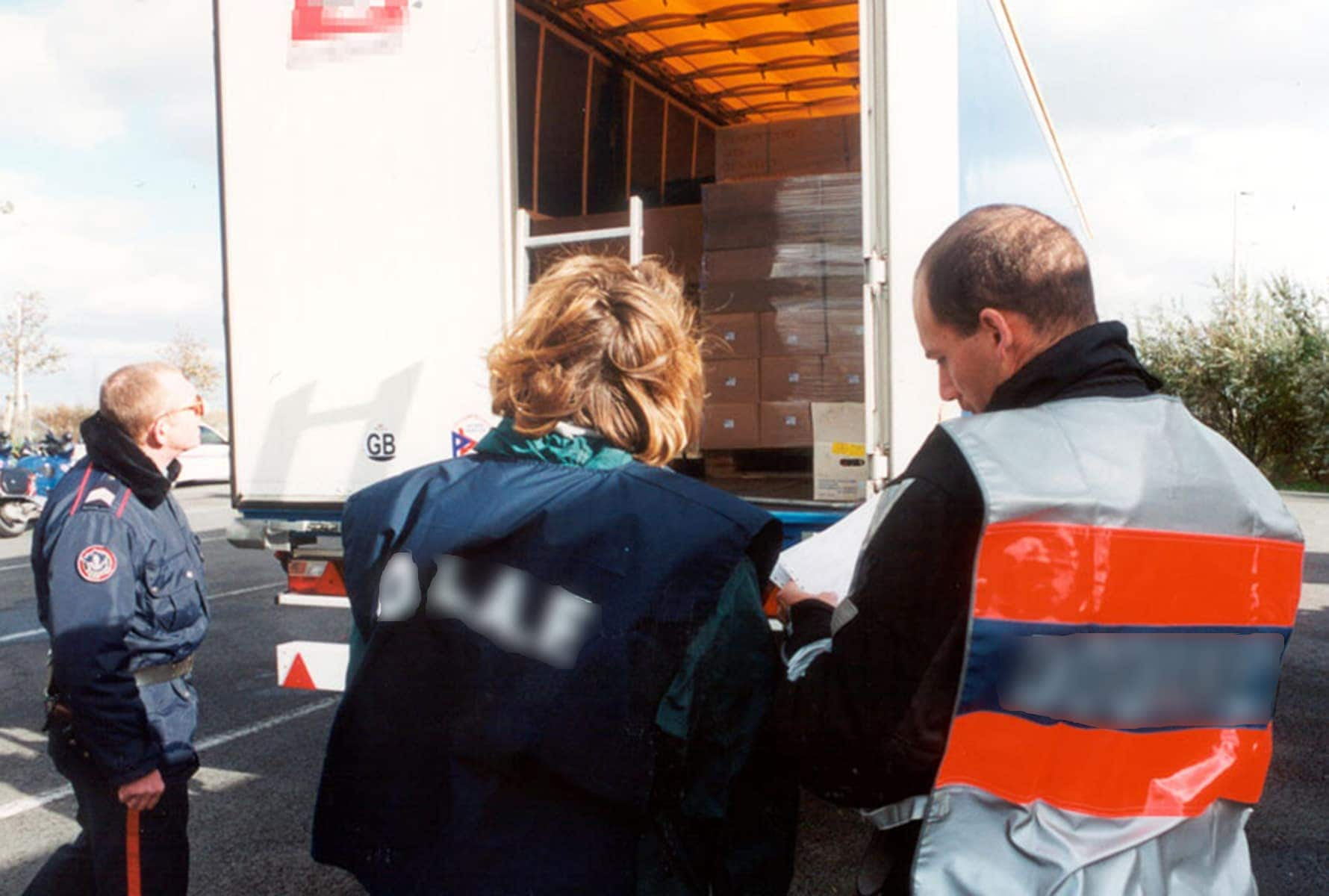
Next steps
In 2021, PMI IMPACT will launch its third funding round, welcoming new projects that will foster partnerships and create synergies to enable sustainable solutions in the battle with illegal trade. The new round will particularly look into funding projects aimed at reducing or preventing illegal trade, as well as counter the negative consequences of illegal trade for individuals, their families and communities.
By defining specific topics, PMI IMPACT will promote practical and tangible solutions, encourage interested parties to develop projects focusing on the following areas:
- Provision of equipment and development of promising technological solutions with potential to improve border control;
- Capacity building for law enforcement and judicial academies;
- Support organizations implementing specific initiatives in the field of victims’ protection and restorative justice;
- Promote public awareness, exchange of good practices and international cooperation on issues related to illicit trade; and
- Recognizing the importance of health security in the wake of COVID-19, bring innovation and technology to fight criminals exploiting the pandemic to their benefits, make the general public aware of the threats of counterfeited and substandard vaccines, medicines, medical supplies and personal protective equipment.
It is more important than ever that we continue coming together and exchanging expertise, ideas and opinions around the shared objective of tackling illegal trade. We will enable others to develop class-leading solutions to tackle illegal trade and the ecosystem of crimes that flourish around it. Cross-sector, public-private collaboration is the key to address the illegal trade problem.Alvise Giustiniani Vice President, Illicit Trade Prevention, Philip Morris International
The manufacturing of fake tobacco products has re-emerged as one of the main illicit trade threats faced by the industry. PMI is committed to fully collaborating with law enforcement agencies to disrupt clandestine factories manufacturing fake tobacco products and protecting both our brands and consumers.
Counterfeit remains one of the only forms of illicit tobacco that continues to rise in regions like the EU -and, as such, is a massive growth industry for domestic and international criminal enterprises. PMI will continue to invest and drive for research, innovation, and public-private collaboration as an absolute must, with the ultimate aim of countering criminals profiting from the clandestine manufacturing of fake tobacco products within EU borders.
Collaboration between private and public sectors (law enforcement agencies, NGOs, international organizations, brand owners, and suppliers) will therefore be crucial, as we continue to develop a better understanding of counterfeit operations, mapping out areas for potential regulatory improvements, participating in litigation, raising awareness on the issue of counterfeiting, and extending training to a large number of law enforcement agents on the front line.
Protecting our brands is a win-win for almost everyone: Consumers get better products, governments collect more taxes, law enforcement puts more criminals behind bars, and PMI safeguards the value of its brands. Only criminals profiting from illicit trade stand to lose.Tamas Sipos Director, ITP EU, Philip Morris International
Illicit networks have taken advantage of the COVID-19 outbreak to scale up the sale of fraudulent goods and deceive the public.
Onward, effective solutions will require, more than ever, cross-industry and public-private collaborative efforts. By pooling resources and sharing intelligence and skill sets, private sector coalitions can play a vital role in educating and empowering audiences to spot fraudulent goods and, in turn, reduce criminal networks’ reach. Applying our expertise and lessons learned from safeguarding own brands and products can better support the public sector at a time of critical need.
This online content about our Integrated Report should be read in conjunction with PMI’s 2020 Integrated Report. The information and data presented here cover the 2020 calendar year or reflect status at December 31, 2020, worldwide, unless otherwise indicated. Where not specified, data come from PMI estimates. Please also refer to 'About this report' on page 3 of the 2020 Integrated Report for more information. Aspirational targets and goals do not constitute financial projections, and achievement of future results is subject to risks, uncertainties and inaccurate assumptions, as outlined in our forward-looking and cautionary statements on page 145. In the 2020 Integrated Report and in related communications, the terms “materiality,” “material,” and similar terms, when used in the context of economic, environmental, and social topics, are defined in the referenced sustainability standards and are not meant to correspond to the concept of materiality under the U.S. securities laws and/or disclosures required by the U.S. Securities and Exchange Commission.

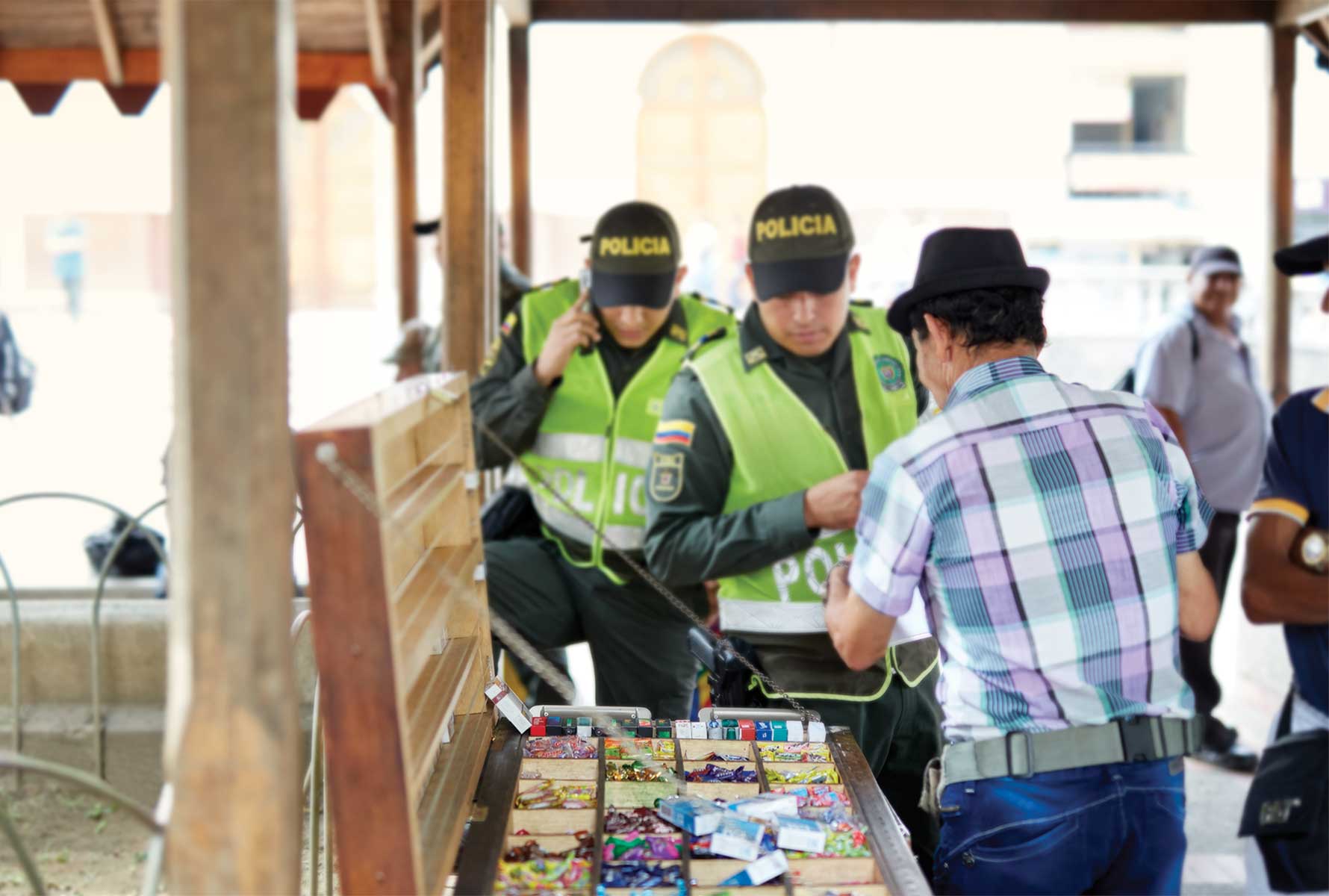


.jpg)
